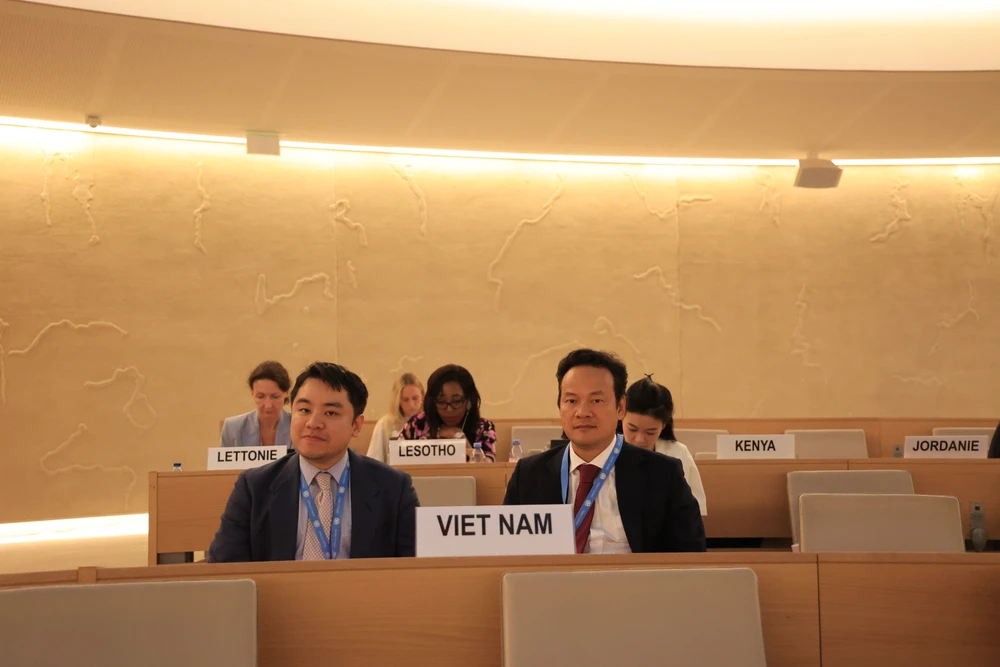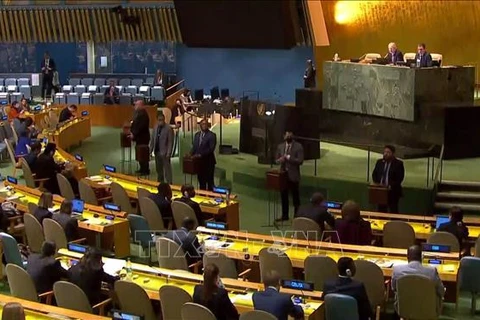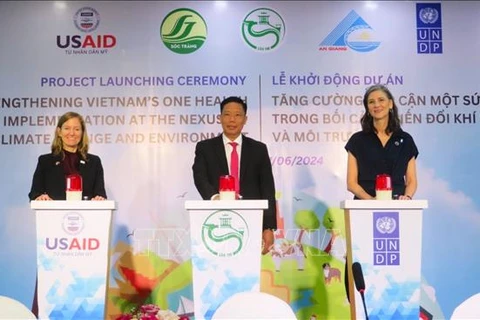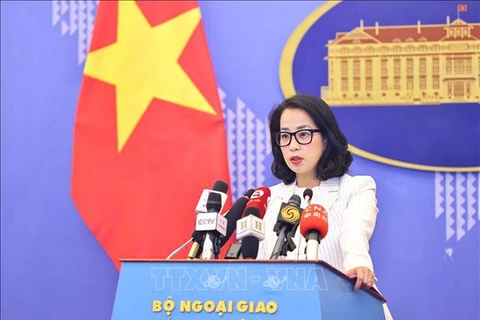
Geneva (VNA) – Vietnamese Ambassador Mai Phan Dung has urged the international community to enhance cooperation to effectively deal with climate change impacts on people’s livelihoods, stressing that ensuring sustainable livelihoods is a top priority of developing countries.
Dung, who is Permanent Representative of Vietnam to the United Nations, the World Trade Organisation (WTO) and other international organisations in Geneva, made the appeal while representing the core group of the UN Human Rights Council (HRC) resolution on human rights and climate change, comprising Vietnam, Bangladesh and the Philippines, to address a debate on ensuring sustainable livelihoods in the face of climate change impacts. The event was part of the HRC’s 56th session in Geneva.
He affirmed that ensuring sustainable livelihoods, particularly for the groups vulnerable to climate change, is a top priority of developing countries. Climate change and extreme weather conditions are causing increasing damage to housing, ecosystems and infrastructure, weakening economies, and affecting the enjoyment of fundamental human rights, especially vulnerable groups.
Apart from calling for the international community’s stronger cooperation to effectively deal with climate change impacts on people’s livelihoods, he also urged the Loss and Damage Fund, established at the 28th UN Climate Change Conference (COP28), to be run efficiently to provide necessary finance for climate change-hit communities, especially in developing countries.
The ambassador also suggested several solutions, including implementing policies to empower local communities through education, resources and adaptation strategies; promoting sustainable practices in agriculture and fishery to guarantee food security and sustainable livelihoods; and integrating the improvement of climate adaptability into social protection programmes to strengthen vulnerable groups’ resilience.
Climate change response is one of the top priorities of Vietnam, which has carried out many policies and drastic action plans to cope with this global phenomenon. The country has also engaged in the strongest international commitments in this regard, including reducing greenhouse gas emissions to secure net zero emissions by 2050./.






















